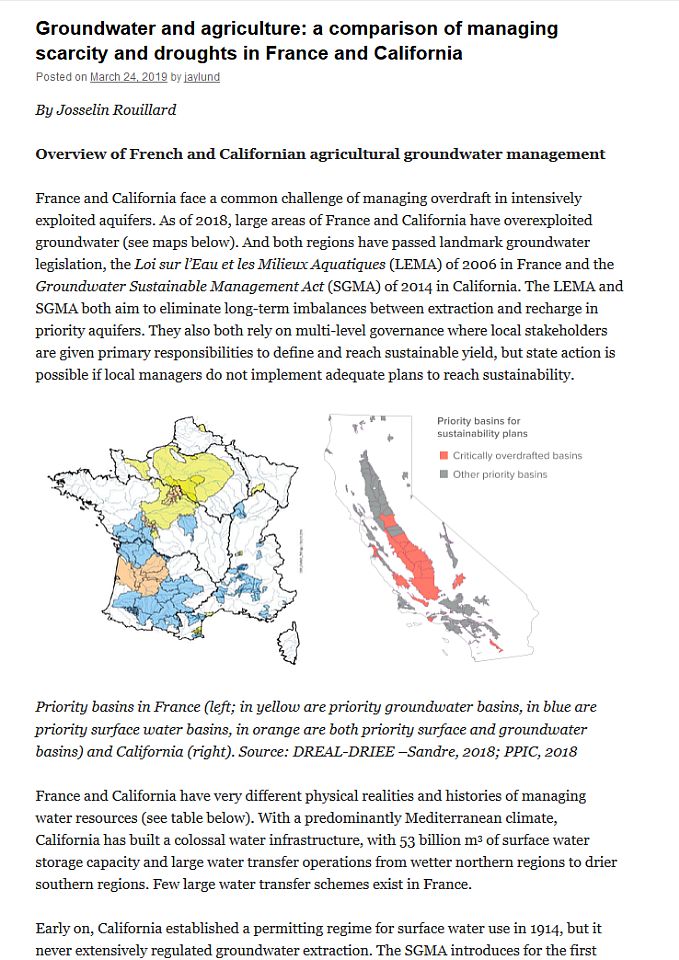Groundwater-based irrigated fruit production, California
|© Josselin Rouillard
Transitioning out of Open Access
A Closer Look at Institutions for Management of Groundwater Rights in France, California, and Spain
- Publication
- Citation
Rouillard, J., Babbitt, C., Pulido‐Velazquez, M., & Rinaudo, J.‐D. (2021). Transitioning out of Open Access: A closer look at Institutions for Management of Groundwater Rights in France, California, and Spain. Water Resources Research, 57, e2020WR028951. https://doi.org/10.1029/2020WR028951
How can the overexploitation of groundwater resources by irrigated agriculture be better managed? Dr. Josselin Rouillard together with colleagues from California, Spain and France, addresses this question in a new scientific article published in Water Resources Research. The research focused on how users and public authorities can work collaboratively and adopt collective rules to regulate access to, and use of, groundwater in agriculture.
Many regions around the world are increasingly regulating access and use of groundwater in order to tackle the overexploitation of groundwater by irrigated agriculture. Groundwater feeds into rivers, lakes and sustains key terrestrial and aquatic ecosystems. It has a major role to maintaining healthy environmental flows in rivers, especially during droughts an dry periods when groundwater is the main source of water for many rivers.
In the past, the State has shown limited capacities to regulate effectively agricultural groundwater use. The paper examines co-management as an approach to control groundwater abstraction in the agricultural sector. It presents how decisions over access and use of groundwater resources are made in three cases, i.e. France, Spain and California, which have adopted recently comanagement as a new groundwater management model. The paper evaluates the institutional arrangements influencing groundwater allocations in the three cases, and the relative involvement and power of users and public authorities over these institutions.
The research carried out an in-depth institutional analysis, based on Schlager and Ostrom's bundle of rights framework, to examine the rules regulating access and use of groundwater, including the governance set up for collective decision-making over water allocations.
The paper shows that the level of involvement and authority of users over the allocation decisions differs widely depending on political, historical and cultural factors. However, in all three cases, the State share a similar overarching role: it delineates priority groundwater basins, imposes the establishment of user organisations responsible for achieving sustainability objectives, and the State reserves a prerogative to intervene if sustainability objectives are not met. This credible threat of State intervention is key to enable local action and ensure users are committed to meet environmental objectives.
However, the paper also questions the long term performance of these three comanagement models. Each case will face unique challenges in achieving successful collaborative decision making between regulators and users. The effectiveness of comanagement will rest on the commitment of the State to enforce sustainable solutions, but also on the legitimacy of management decisions and their adaptation to local circumstances, and ultimately on users supporting the new environmental standards. This underlines the importance of establishing not only institutional checks and balance across governance levels (e.g. through credible regulatory threats), but also processes of trust building and social learning between state actors and users to ensure a common understanding of the need to regulate groundwater use and how to do so.




